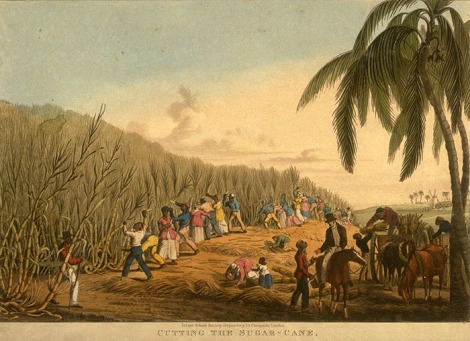
This past October Potsdam University in Germany hosted a conference of interest to the history of the Western Sephardim . The title of the conference was ‘Colonial History – Sephardic Perspectives.’ The presentations looked at subjects relating to Conversos and Jews during the New World colonial era. A major focus on the conference was the question of slavery and the role of Jews and Jewish descendants in it. While I didn’t attend, I enjoyed reading the conference review available here.
I found this sentence most thought provoking: The issue of Sephardic involvement in slave trade becomes painful, or even that unbearable that it has to be denied altogether, only when historians take their personal assumptions and preferences or their institution’s bias into their research. For more, read the entire review!
Conference overview:
Thomas Brechenmacher (Potsdam), Sina Rauschenbach (Potsdam): Inauguration and Introduction
Jonathan Schorsch (Potsdam): New Christian Slave-Trading: Ideology and the Formation of Scholarship
Max Sebastián Hering Torres (Bogotá): Exclusion in Transfer: “Jewish Blood” and “Black Blood” in the 17th and 18th Centuries
Chairs: Michael Heinzmann (Potsdam), Klaus Weber (Frankfurt/Oder), Christoph Schulte (Potsdam), Nicole Waller (Potsdam)
José Alberto Tavim (Lisbon): Galut and Empire: In the Way of a Final Redemption
Peter Mark (Middletown, CT), José da Silva Horta (Lisbon): Senegambian Sephardic Communites in the 17th Century and the Connections with their United Provinces Bases: Was ‘’Racial’’ Thought an Issue?
Micha Brumlik (Berlin): Sephardim in the American Southern States: Attitudes Towards Slavery
Ineke Phaf-Rheinberger (Berlin): Barlaeus In-Between Africa and America
Tirtsah Levie-Bernfeld (Amsterdam /Berlin): The Migration Policy of the Amsterdam Portuguese Community
Jessica Roitman (Leiden): In Between the Intermediaries: Jews, Amerindians, and Enslaved People in the Mediation of Colonial Authority
Jan Jansen (Washington): Imperial Freemasonry and the Sephardic Jews in the Caribbean (18th — 19th Centuries)
Chair: Liliana Ruth Feierstein (Berlin)
Iris Idelson-Shein (Frankfurt am Main): Mimicry and “Masa” in the Jewish Haskalah
Ana Sobral (Zürich): Jamaican Jews: History and Memory
Boris Barth (Konstanz): Final Discussion
Dear Shalom,
It would be good if you were able to advise this conference’s participants that there has been some good research on these issues in recent years.
Obviously the proceedings of the Kingston Conference in 2010 published under the title “Jews in the Caribbean” by Littman will be of interest to them and to you also.
Publications by Mordechai Arbell are also important and there are others now with more coming.
If I get to London again this summer I will be happy to speak to Bevis Marks on the subject and perhaps launch the book in England. It was only formally launched in Kingston and New York last year.
Regard to Ton, we met in Jerusalem in July.
Best
Ainsley
Dear Ainsley, thank you for this comment! It is a wonderful book that I’ve greatly enjoyed. I’d love to welcome you to London!
All the best,
Shalom
Dear Rabbi,
Thank you for sending this to me. I found the summary of Boris Barth’s contribution the most interesting. I should have said that it was obvious that New Christians behaved like anybody else in the same position. I remember the case of Manuel Bautista Perez, who appeared at a great Auto de Fe in Lima on January 23rd, 1639, who was a major slave dealer and one of the most important businessmen.
Perhaps one should think about how New Christians, assuming that they were aware of Jewish teaching on how to treat slaves, actually behaved towards their slaves. Doesn’t the Rashba have a harsh comment about Spanish Jews who engendered children on Muslim slave women, and circumcised them, giving them their names and effectively making them Jewish ? Did this happen in the West Indies also ? For some strange reason, I’ve never been able to lay my hands on Jonathan Schorch’s book on Blacks and Jews ?
With best wishes for 2016,
Michael.
Dear Michael Alpert,
Professor Jonathan Schorsch’s book is available on Amazon.co.uk
Happy reading!
Pingback: Mishpatim – Sephardim and Slavery | Shalom Says Hello·